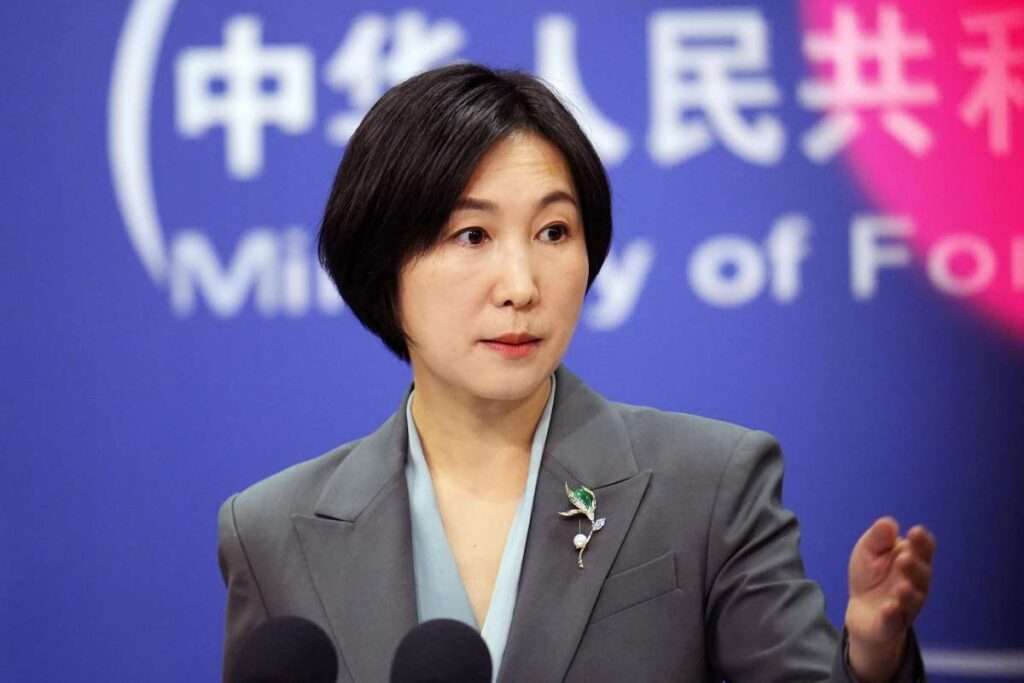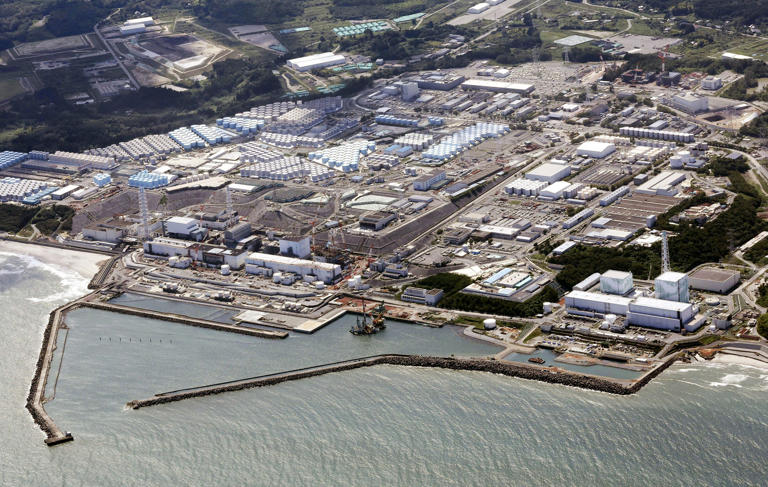China has lifted a nearly two-year ban on seafood from Japan over the discharge of slightly radioactive wastewater from the tsunami-destroyed Fukushima nuclear power plant.
A notice from the customs agency said the ban had been lifted and that imports from much of Japan would be resumed.
The ban, imposed in August 2023, was a major blow to Japan’s scallop and sea cucumber exporters. China was the biggest overseas market for Japanese seafood.
The decision to lift the ban coincides with efforts by China and Japan to improve ties as both face economic uncertainty because of the American tariffs imposed by President Donald Trump.
The nuclear plant at Fukushima was heavily damaged by a deadly tsunami that followed a huge offshore earthquake in 2011.
Water still must be pumped in to cool the radioactive fuel. The water is then stored in what was an ever-growing complex of tanks on the property.
After years of debate, the utility won Japanese government permission to discharge the water gradually into the sea after treating it to remove most of the radioactive elements and diluting it with seawater.
Japanese officials said the wastewater would be safer than international standards and have negligible environmental impact.

However, China disagreed and imposed a ban, saying the discharge would endanger the fishing industry and coastal communities on its east coast.
Over months of talks, Japan agreed to let China take samples of the water for testing. According to the customs agency notice, the sampling has not found any abnormalities.
Chinese Foreign Ministry Spokesperson, Mao Ning said that China still opposes the wastewater discharge, but based on scientific evidence and analysis, it is allowing imports on a conditional basis from parts of Japan that meet China’s standards.

However, a ban remains in place for seafood from 10 of Japan’s 47 prefectures, including Fukushima and nearby ones.
The Chinese customs agency stated that Japanese seafood exporters will have to reapply for registration in China and all imports will have to include a health certificate, a certificate of compliance for radioactive substance testing and a certificate of origin.
The agency disclosed that it will rigorously monitor and control imports of Japanese marine products.
The officials vowed to promptly take necessary measures to solidly protect Chinese people’s health and safety if they ascertain cases in which China’s relevant laws or food safety standards are not met.
They added that similar steps will also be taken if the Japanese side fails to fulfill its supervisory responsibility appropriately.
Positive Reaction To China’s Restart Of Imports Of Japanese Seafood
Japanese seafood exporters and government officials reacted positively to China’s announcement it will resume imports of the country’s marine products.
Agriculture, Forestry and Fisheries Minister Shinjiro Koizumi, the son of former Prime Minister Junichiro Koizumi, said, “This is a major turning point for Japan, which sees seafood as an important source of exports.”
He noted that the public and private sectors will work together to resume exports to China swiftly and smoothly, adding that he appreciates all who have made efforts on the issue.
Noting the re-registration requirement, Japanese Government Spokesperson, Kazuhiko Aoki told reporters in Tokyo that shipments to China are expected to resume gradually.
He said that it was unclear how quickly scallop and sea cucumber exporters would return to China, because they had sought out other markets since the ban.
Nonetheless, he predicted sales of sea cucumbers, a prized delicacy in China, would recover to a certain degree.
Aoki added that the Japanese government would continue to press for the lifting of the export ban on the other 10 prefectures.
READ ALSO: GCB Bank Rides Momentum with Over 3% Share Price Gain























